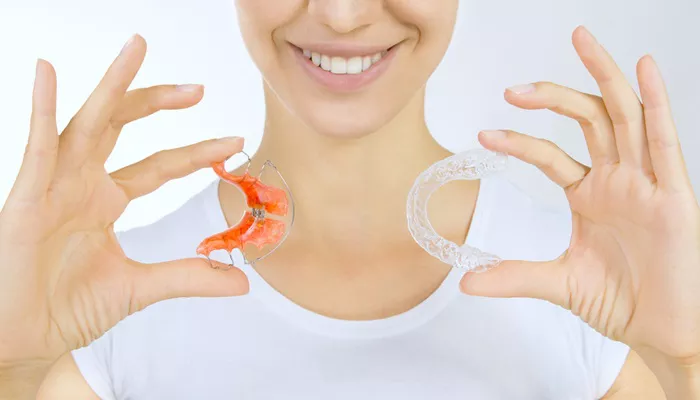Orthodontics, a specialized branch of dentistry, focuses on the diagnosis, prevention, and correction of malocclusions, which refer to irregularities in the alignment of teeth and jaws. Patients undergoing orthodontic treatment, such as those with braces, often have questions about their daily oral hygiene routines, including whether it is safe and effective to use mouthwash. This guide aims to provide a detailed, professional perspective on the use of mouthwash while wearing braces, addressing potential benefits, risks, and best practices.
Understanding Mouthwash and Its Types
Mouthwash is a liquid product used to clean the mouth and teeth, aiming to remove plaque, bacteria, and food particles. It comes in various forms, including therapeutic, cosmetic, and natural mouthwashes. Each type serves a different purpose and has its own set of ingredients.
Therapeutic Mouthwashes: These contain active ingredients proven to treat specific dental problems, such as gingivitis, bad breath, or dry mouth. They are prescribed by dentists based on individual patient needs.
Cosmetic Mouthwashes: These do not contain active ingredients but are designed to provide a pleasant taste, freshen breath, and improve the overall oral experience. They are suitable for everyday use and can enhance oral hygiene routines.
Natural Mouthwashes: These are formulated with natural ingredients, such as essential oils, herbs, and botanical extracts.
They aim to cleanse the mouth and freshen breath without the use of synthetic chemicals.
The Benefits of Using Mouthwash with Braces
When worn correctly, braces can effectively align teeth and improve oral health. However, they can also create challenges for maintaining optimal oral hygiene. Food particles and plaque can easily get trapped between braces and teeth, leading to increased risks of cavities, gingivitis, and other dental problems. Using mouthwash can provide several benefits to patients with braces:
Enhanced Plaque Removal: Mouthwash can help dislodge plaque and food particles that are difficult to remove with brushing and flossing alone. This can reduce the risk of cavities and gum disease.
Fresh Breath: Mouthwash can help neutralize bad breath caused by bacteria and food particles trapped in braces. This can improve self-confidence and social interactions.
Additional Protection: Therapeutic mouthwashes can provide additional protection against specific dental problems, such as gingivitis, which is common in patients with braces due to the increased difficulty in cleaning around the appliances.
Potential Risks and Considerations
While mouthwash can be a valuable addition to an oral hygiene routine while wearing braces, there are also potential risks and considerations to be aware of:
Ingredient Sensitivity: Some mouthwashes contain ingredients that can cause sensitivity, especially in patients with sensitive teeth or gums. It is important to choose a mouthwash that is suitable for your individual needs and to consult with a dentist if you experience any discomfort.
Interaction with Orthodontic Appliances: Certain mouthwashes, particularly those with high alcohol content, can potentially damage orthodontic appliances, such as brackets and wires. It is important to choose a mouthwash that is compatible with your braces and to avoid using harsh or abrasive products.
Overuse: While mouthwash can be beneficial, overuse can lead to dry mouth, which can increase the risk of cavities and gum disease. It is important to use mouthwash in moderation and as directed by a dentist.
Best Practices for Using Mouthwash with Braces
To maximize the benefits and minimize the risks of using mouthwash while wearing braces, follow these best practices:
Consult with a Dentist: Before using any mouthwash, consult with your dentist to determine which type is most suitable for your individual needs and orthodontic appliances.
Choose a Mild Mouthwash: Opt for a mild mouthwash that is compatible with your braces and does not contain harsh ingredients that can cause sensitivity or damage to appliances.
Use in Moderation: Use mouthwash in moderation, as directed by your dentist. Overuse can lead to dry mouth and other issues.
Combine with Brushing and Flossing: Mouthwash should be used as a supplementary tool to brushing and flossing, not as a replacement. Brush your teeth at least twice a day with fluoride toothpaste and floss daily to remove plaque and food particles trapped in braces.
Regular Check-ups: Schedule regular check-ups with your dentist and orthodontist to monitor the health of your teeth, gums, and braces. This will allow for early detection and treatment of any potential problems.
Conclusion
In conclusion, using mouthwash while wearing braces can provide several benefits, including enhanced plaque removal, fresh breath, and additional protection against dental problems. However, it is important to choose a mouthwash that is suitable for your individual needs and orthodontic appliances, and to use it in moderation as directed by a dentist. By combining mouthwash with regular brushing and flossing, and scheduling regular check-ups, patients can maintain optimal oral health throughout their orthodontic treatment. Remember, oral hygiene is crucial for the success of orthodontic treatment and long-term dental health.
Related topics:

